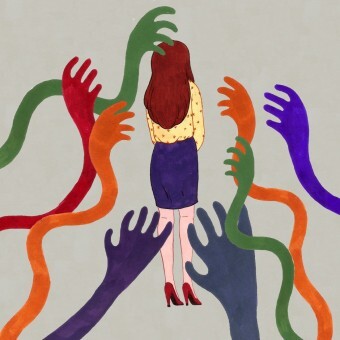
On July 18th, the death by suicide of a teacher at Seo2 elementary school sparked a movement to restore teacher’s authority. Teachers across the country, who had previously been frustrated by malicious complaints from parents and their false reports of child abuse, were outraged by her tragic death. For six weeks in a row, teachers held a rally in front of the National Assembly in Seoul, calling for the investigation into the teacher’s suicide, as well as the government’s revision of education policies and legislation to reflect the voices of teachers and save public education. Among the legislative changes demanded, immunity from child abuse, which states that teachers' legitimate guidance is not considered child abuse, has become a hot topic.
Article 17, paragraphs 3 through 6 of the Child Welfare Act prohibits physical and emotional abuse of children. Accordingly, violators are punishable by imprisonment for up to five years or a fine of up to 50 million won. It was pointed out that reckless complaints and accusations against teachers continue to be filed under these laws. In addition, the Teacher Rights Protection Act, which grants teachers’ immunity from child abuse for legitimate student guidance, crossed the threshold of the National Assembly's Education Committee's Bill Subcommittee in August. Many have welcomed the bill as a way to protect teachers from indiscreet complaints and reports of child abuse. On the other hand, there are lingering concerns about the possible side effects of immunity from child abuse. Jae-yeong Seo, a professor of the Department of Education at Hannam University, said, "This amendment is not a conflict between 'student guidance rights' and the 'human rights' of students, but rather a matter of how to maximize the protection of the majority of 'student’s right to learning' without undermining their 'human rights.' However, efforts should continue to define the scope of 'legitimate student guidance' and to carefully establish the criteria for determining 'intentional or serious error' in order to strongly protect student rights," and remember the true purpose of this amendment.
Then, how do other countries protect both the rights of teachers and students? Let's look at the examples from Germany and the United Kingdom. Germany's law guarantees teachers the right to discipline students. The law also specifies the extent to which discipline can be done at the school or community level, rather than solely on an individual basis. For example, in the state of North Rhine-Westphalia, teachers can immediately warn and exclude a student from class on their own initiative for disruptive behaviors. If the offending behavior does not change, the student can be referred to the principal or a committee and even be expelled. If the level of disruption is higher, there may even be a discussion in a state-federal level to protect teaching rights.
In the United Kingdom, Department for Education (DfE) guidance states that if the level of disruption is severe enough, the offending student can be excluded from class for a period or suspended. It also lists instances where reasonable physical contact with a student is allowed as part of the disciplinary process. According to the DfE’s School Behavior Guidelines, students who are punished will be excluded from the classroom under the direction of the teacher and will receive supervised, separate instruction. Students who infringe on the teacher’s rights are supervised in a separate classroom within the school to prepare for their return to class. This education policy of the UK protects teachers' authority while also giving the guilty student a chance to return to the classroom, ensuring that disruptive behavior does not escalate into a serious conflict. The fact that the authority to discipline students is set by lawful and detailed guidance is the most differentiating factor from the Korean education system, where the responsibility for disciplining students solely rests with the teacher.
13 years after the Seoul Ordinance of Student Rights was first drafted, education policy is again out of balance. South Korea's education policy is currently going through a transitional period where it is trying to find a middle ground where both teachers' and students' rights are respected.At this point, it is essential to restore the rights of teachers, not only to protect their rights as humans, but also to protect the rights of students to learn in peaceful environments. Only in a safe society where teachers' rights are not violated; we can make the beautiful relationship between students and teachers that fosters future talent.

